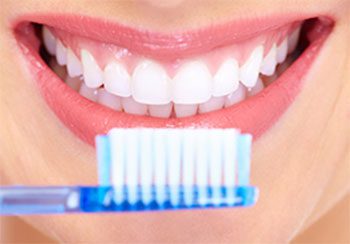A smile is more than just a facial expression; it’s a universal symbol of happiness, warmth, and confidence. However, behind every radiant smile lies a foundation of optimal oral hygiene. While brushing teeth is a fundamental aspect of oral care, its importance extends beyond mere plaque removal. In this comprehensive guide, we delve into the multifaceted realm of oral hygiene, exploring the significance of practices beyond brushing and unveiling the transformative power of a healthy smile.
- The Anatomy of Oral Health:
Understanding the intricate structure of the oral cavity provides insight into the importance of comprehensive oral hygiene. From teeth and gums to the tongue and palate, each component plays a crucial role in maintaining oral health. Plaque, a sticky film of bacteria, accumulates on tooth surfaces and along the gumline, posing a threat to dental health if left unchecked. By embracing holistic oral hygiene practices, individuals can preserve the integrity of their oral structures and foster overall well-being.
- Embracing Proper Brushing Techniques:
While brushing teeth serves as a cornerstone of oral care, the efficacy of this practice hinges on proper technique and consistency. Dentists recommend brushing teeth twice daily using fluoride toothpaste and a soft-bristled brush. Employing gentle, circular motions ensures thorough plaque removal while minimizing abrasion to tooth enamel and gum tissue. Paying attention to neglected areas, such as the back molars and along the gumline, optimizes oral cleanliness and reduces the risk of dental problems.
- Harnessing the Benefits of Flossing:
Flossing complements brushing by targeting areas between teeth and below the gumline where toothbrushes cannot reach effectively. Daily flossing removes trapped food particles and plaque, thwarting the development of cavities and gum disease. Utilizing dental floss or interdental brushes with proper technique promotes gum health and enhances overall oral hygiene. Emphasizing the importance of flossing empowers individuals to elevate their oral care regimen and reap the rewards of a healthier smile.
- Incorporating Mouthwash into Daily Routine:
Mouthwash serves as a valuable adjunct to brushing and flossing, providing additional protection against oral bacteria and bad breath. Antimicrobial mouthwashes containing ingredients such as chlorhexidine or essential oils help reduce plaque accumulation and combat gingivitis. Fluoride mouthwashes contribute to cavity prevention by strengthening tooth enamel and remineralizing vulnerable areas. Integrating mouthwash into daily oral care routines enhances cleanliness and promotes oral health.
- Nurturing Gum Health:
Healthy gums are essential for maintaining a strong foundation for teeth and supporting overall oral health. Gingivitis, the earliest stage of gum disease, manifests as red, swollen gums prone to bleeding during brushing or flossing. Practicing good oral hygiene, including regular brushing, flossing, and professional cleanings, prevents gum disease progression and preserves gum tissue integrity. Massaging gums with a soft toothbrush or specialized gum stimulator promotes circulation and fortifies gum health.
- Adopting a Balanced Diet for Dental Health:
Nutrition plays a pivotal role in oral health, influencing tooth strength, gum resilience, and saliva production. Consuming a balanced diet rich in fruits, vegetables, lean proteins, and dairy products supplies essential nutrients for maintaining healthy teeth and gums. Limiting sugary and acidic foods mitigates the risk of cavities and enamel erosion, while staying hydrated facilitates saliva production, aiding in natural plaque removal and pH regulation. By fueling the body with nourishing foods, individuals support optimal dental health and preserve their radiant smiles.
- Minimizing Harmful Habits:
Certain habits can compromise oral health and detract from the brilliance of a smile. Smoking and tobacco use not only stain teeth but also increase the risk of gum disease, tooth loss, and oral cancer. Excessive alcohol consumption contributes to dry mouth and oral tissue irritation, exacerbating dental problems. Nail biting, teeth grinding (bruxism), and using teeth as tools for opening packages or biting nails pose threats to tooth integrity and oral health. By minimizing harmful habits, individuals protect their smiles and promote long-term dental wellness.
- Seeking Regular Dental Care:
Routine dental check-ups and cleanings are essential components of preventive oral care, facilitating early detection and intervention of dental issues. Dentists recommend biannual dental visits for comprehensive examinations, professional cleanings, and personalized oral health guidance. Dental professionals assess oral health status, screen for signs of dental disease, and provide tailored recommendations for optimizing oral hygiene practices. Embracing proactive dental care fosters a collaborative partnership between individuals and their dental providers, ensuring ongoing support for a healthy smile.
- Cultivating Positive Oral Health Habits:
Beyond the tangible aspects of oral hygiene lies the importance of cultivating positive attitudes and habits toward dental care. Instilling good oral health practices in children from an early age establishes lifelong habits and fosters a positive relationship with dental care. Setting realistic goals, celebrating oral health milestones, and embracing the journey toward a healthier smile foster motivation and commitment to oral hygiene. By nurturing a positive mindset and prioritizing oral health, individuals unlock the transformative power of a radiant smile.
The journey to a vibrant, healthy smile transcends the act of brushing teeth; it encompasses a holistic approach to oral hygiene that integrates comprehensive practices and positive habits. By embracing proper brushing techniques, flossing diligently, incorporating mouthwash, nurturing gum health, adopting a balanced diet, minimizing harmful habits, seeking regular dental care, and cultivating positive attitudes toward oral health, individuals unlock the full potential of their smiles. Empowered with knowledge and commitment to oral wellness, individuals embark on a lifelong quest for optimal dental health and the enduring beauty of a radiant smile.
